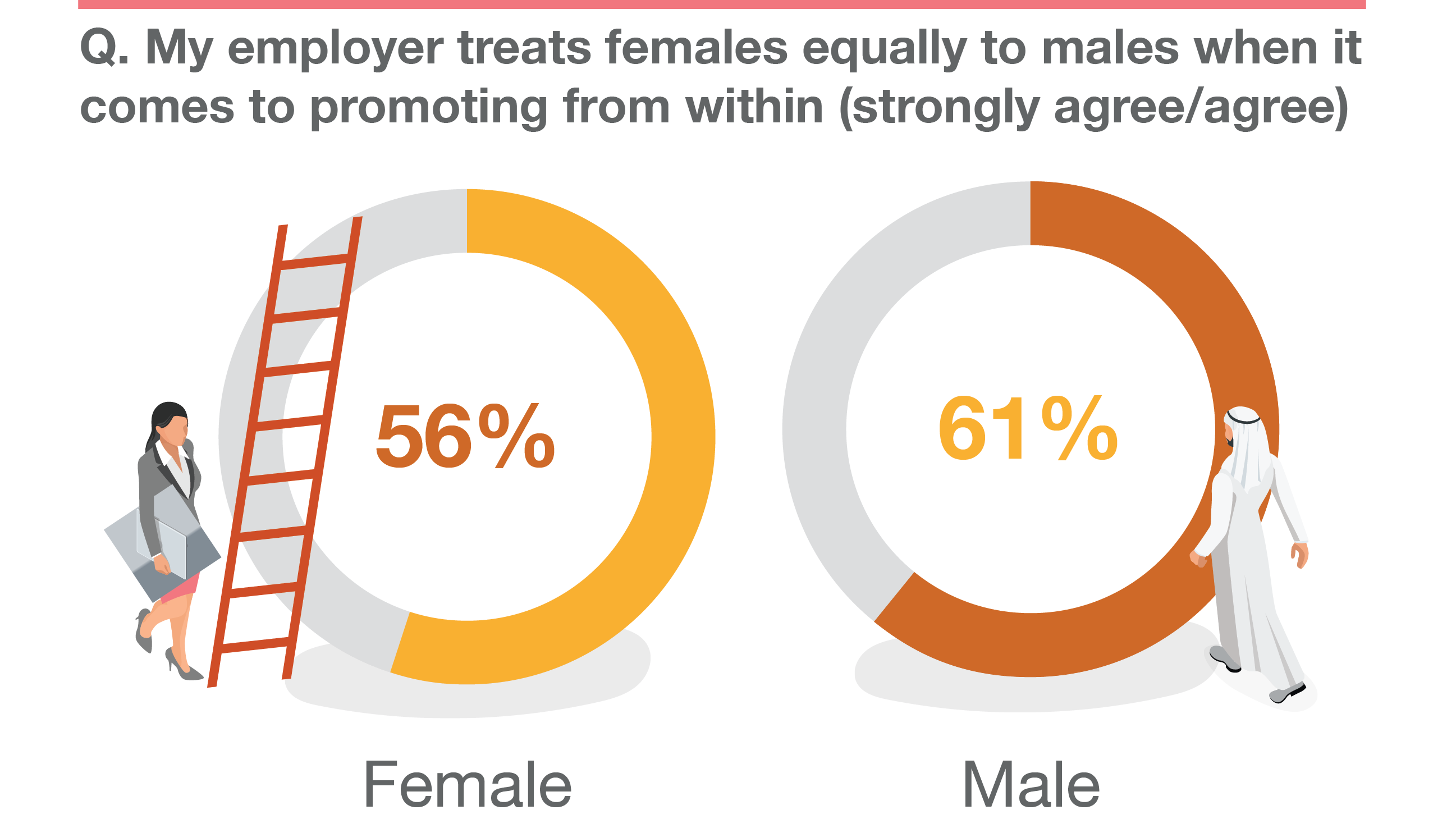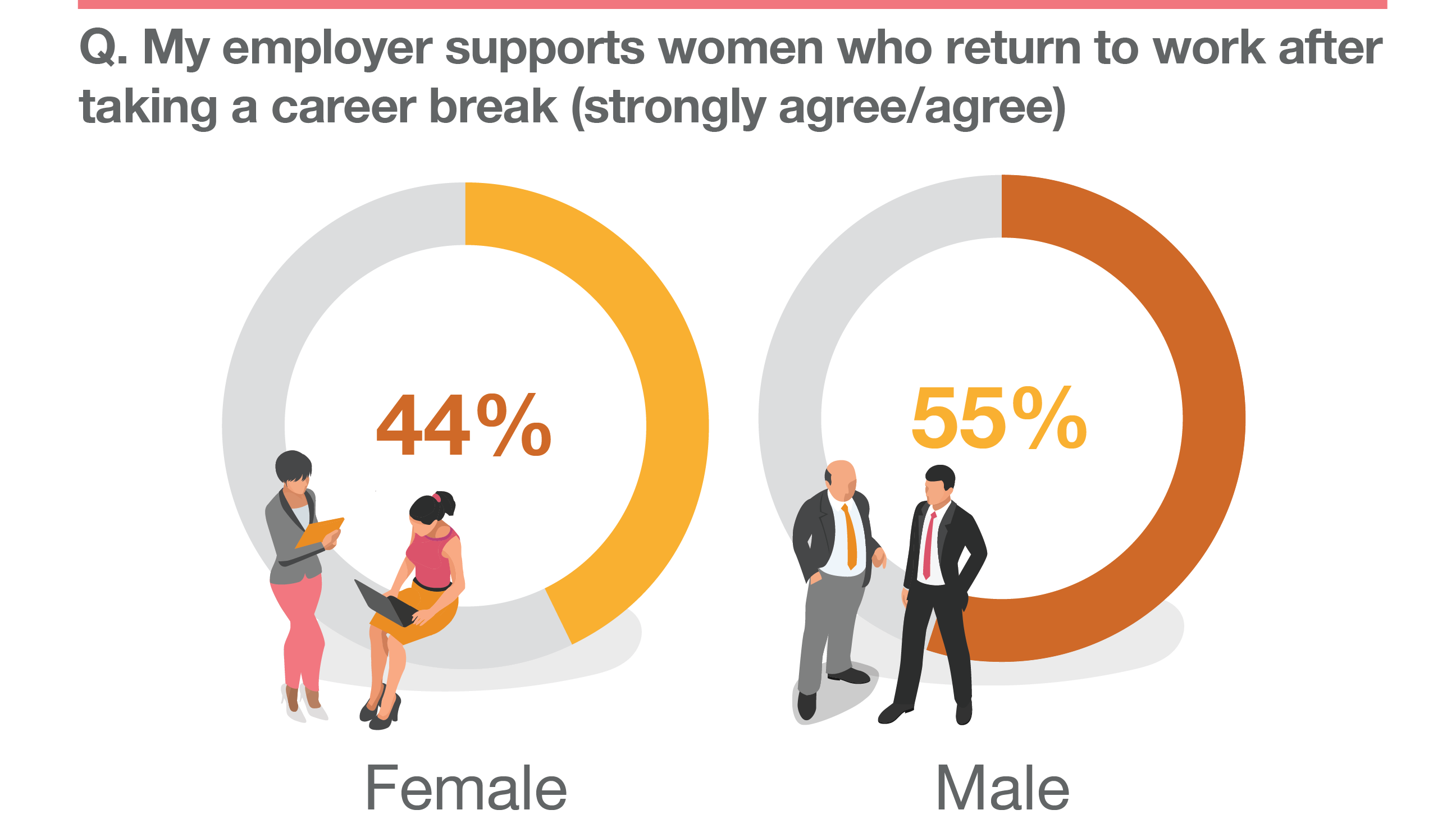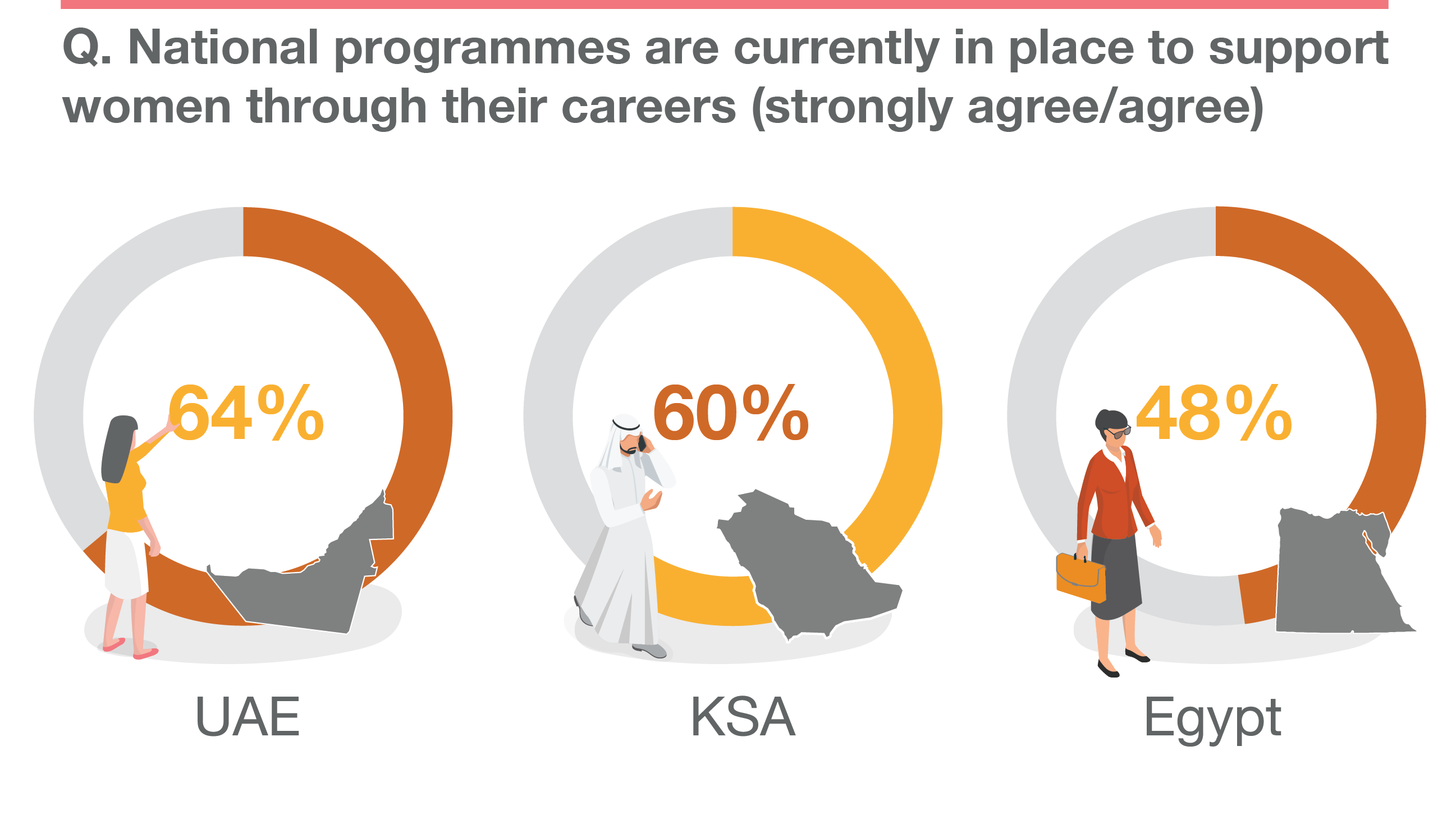
Summary
Diversity in the workplace can drive financial performance. Boosting the number of women in work is not just a moral imperative but also has a measurable impact on the bottom line. This is the conclusion of a growing body of evidence that is persuading companies and governments around the world to act.
Our Women In Work Index - Insights from MENA survey of more than 3,000 women and men across the United Arab Emirates (UAE), the Kingdom of Saudi Arabia (KSA) and Egypt provides insights on the regional workforce and where we can improve gender diversity. This information can help policymakers in the public and private sectors to create tailor-made initiatives to foster diversity.
The three countries we surveyed have varying histories of national programmes to boost the number of working women. There is high awareness and support for such initiatives, showing that timely government intervention is often welcomed.
Our research shows that 66% of all respondents believed that governments should intervene in private-sector companies and set targets for gender diversity.
While it’s encouraging to see governments putting in place initiatives to improve diversity in the workplace, leaders need to prioritise and take action to close the gender gap to make a real impact.

Key findings
Pay and progression
Pay equality is important, but it's only the beginning of creating a truly inclusive culture. Our survey shows that people across the MENA want gender equality in terms of opportunity and access to leadership positions, as well as support for employees. Organisations can provide this by openly discussing and raising awareness of both conscious and unconscious bias, ensuring the right tone is set at the top, for example, by tying diversity to business goals, and setting up mentorship programmes.
Our survey reveals important differences in perception between men and women. When asked about equal treatment for promotion, more men than women reported not seeing any problems.

Our survey also shows that many women who return to work after a career break feel a lack of support from their employer. Gender stereotypes as well as lack of flexible working policies contribute to this. We do see flexible working as a growing trend around the world as more people want to fit work around their lives rather than life around their work. The chance to work flexibly can benefit all employees, not just women returning to work after having children, however in Gulf Cooperation Countries (GCC) the crucial first step is to start with women.

Governments can play a mightier role
The three countries we surveyed have varying histories of national programmes to boost the number of working women. There is high awareness and support for such initiatives, showing that timely government intervention is often welcomed.
Our research shows that 66% of all respondents believed that governments should intervene in private-sector companies and set targets for gender diversity.
National policies include a draft law in the UAE last year to ensure men and women receive equal pay. The UAE also introduced three months’ paid maternity leave for government employees last year, increasing pressure on the private sector to keep up.
The Saudi government’s ambitious target to increase female participation in the workforce to 30% as part of Vision 2030 is already bearing fruit. Labour-force participation of women was 14.2% in 1990 and reached 22.3% last year, according to data from the World Bank.2

Call to Action
PwC can help stakeholders, private and public, to take the many small steps needed to create lasting cultural change. Based on our experiences and research, we have identified four main tactics:
1. PwC Women in Work Index 2019: https://www.pwc.co.uk/services/economics-policy/insights/women-in-work-index.html
2. https://data.worldbank.org/indicator/SL.TLF.CACT.FE.ZS?locations=SA













